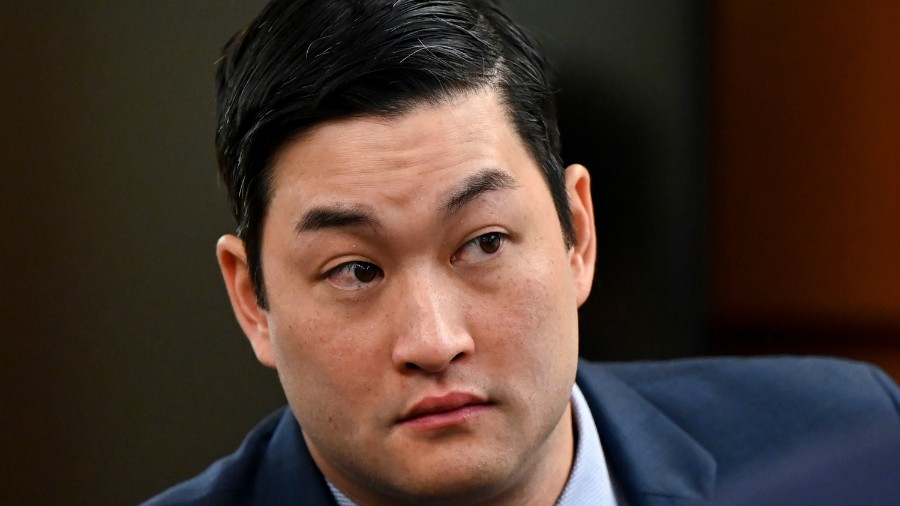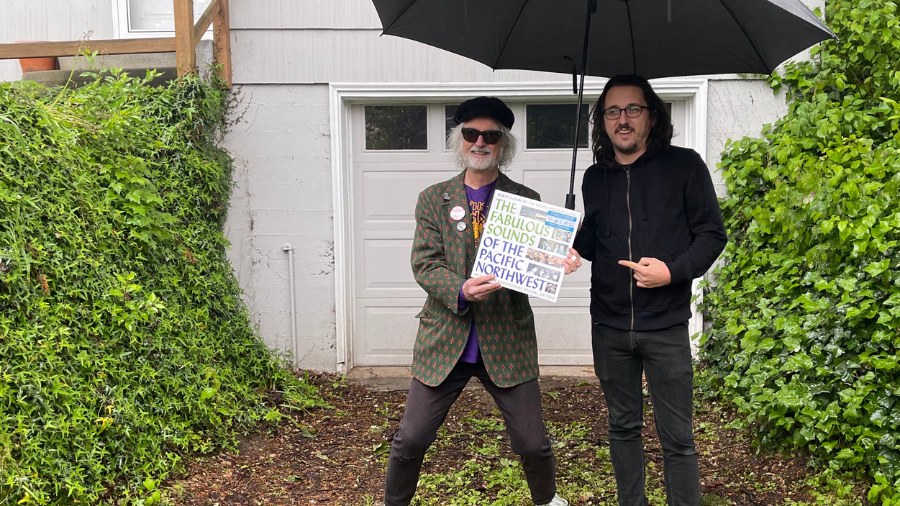New resource center to close gap in Snohomish County’s fight against opioid crisis
Dec 21, 2018, 3:50 PM | Updated: 3:57 pm

The new Carnegie Resource Center opens in Everett in January 2019. (Hanna Scott, KIRO Radio)
(Hanna Scott, KIRO Radio)
From declaring an emergency, to starting addiction treatment at the jail, to dedicated outreach teams of social workers and sheriff’s deputies, Snohomish County has been tackling the opioid and homeless crisis head on.
Another key piece of that response will open its doors next month.
The county’s dedicated teams of social workers and sheriff’s deputies go out on a daily basis to homeless encampments and other places where drug users, homeless, and those with mental health issues converge to try to build relationships and coax people into treatment.
When someone accepts help, the teams take them through an assessment process. When it’s an addiction issue, they help get them into detox, then treatment, and then housing. They stay engaged with them through the entire process.
Earlier this year, the county also re-purposed an old 44-bed work release facility right across from the jail as a diversion center, where those dealing with addiction can be placed for up to two weeks. Addicts will be stabilized with a medication-based treatment, such as suboxone.
The third part of the plan the county is deploying is a resource center with several services located across the street to help people getting out of the diversion center or the jail to get connected with services.
Location for the new resource center was key.
Cami Hart-Anderson, with the Snohomish County Human Services Department, says that’s when they thought about the old Carnegie Library sitting empty right there on the county campus.
“The conversation, the idea about let’s do something with that building that’s sitting there empty and there’s so much need, it started about 2013 … and so here we are five years later,” Hart-Anderson said. “It was just piece by piece and how are we going to make that happen? We were able by sitting down and having a conversation (and) figuring out.”
Now it is about to become a reality. The historic building that once served as the County Executive offices has been re-purposed as the new Carnegie Resource Center. It’s set to open early next month, and will be run by Pioneer Human Services, which the county is contracting with to run the facility.
“We’re going to do amazing things,” Pioneer’s Callie Vaughn explained to KIRO Radio’s Hanna Scott at a Thursday evening open house.
“We’re targeting to serve veterans, individuals experiencing chronic homelessness, people releasing from incarceration who have substance-use disorder, or who have mental health conditions, or both,” Vaughn explained.
As for the services that will be offered?
“We’ve got everything from DSHS to community health centers, to employment services to GED services. (We) really want to help people get back on their feet,” Vaughn said. “We don’t have things like sleeping bags and pairs of socks and things like that. We’re really wanting to help people become self-sufficient.”
Snohomish County Jail Chief Anthony Aston says having this resource center is going to be significant.
“What this means to us, it’s like a one-stop shop of all the social services that we ask people to go get,” Aston explained. “So when we release somebody from jail, for instance, we need to get them either to treatment, or they need identification or their social security is expired, all these different services. We have an expectation — or had an expectation — to give them a bus pass and say, ‘Hey, make sure you make your next appointment,’ and these people may be chemical dependent, they have mental health issues, they’re homeless … So our expectation is they’re going to go to make these appointments. They weren’t.”
Aston says that was a massive gap in the system that he expects will close.
“I’m go to able to, for instance … walk them — 75 feet — right out into this place where all of those providers should be right here and serve their needs,” Aston said.
Chief Aston says this will compliment everything the county already does to address addiction and homelessness, including medication-based treatment offered at the jail. He stopped short of calling this the final piece of the puzzle.
“It’s a bigger piece of the puzzle,” Aston said. “I mean this, we almost can’t ask for anything more than to have a diversion center, a jail that is offering all the services we possibly can inside of it, and then this one-stop shopping here. So is there always more? Yeah, we’re always looking to improve. I think you should always strive to do better for the community.”
Aston has high hopes and expects to see positive results by this time next year.
“I think we’re going to see a much for our community out here,” Aston said. “I think our homelessness, I would like to believe is going to drop some form of a degree.”
He also hopes it cuts down on the number of people returning to his jail.
“Even though I know there’s going to be recidivism, one of the key data points that I’m looking for is that if I do have somebody that shows back up (is) have we got them clean and sober now? Or are they at least in a different program? We’re just really trying to break an addiction cycle and a mental health cycle that’s been left ignored,” Aston explained.
Snohomish County Sheriff Ty Trenary says it’s that type of mindset and their coordinated approach that sets Snohomish County apart from other approaches to opioids and homelessness.
“Oh my God, this is nothing like Seattle and King County,” Trenary stressed.
“Those leaders have their own decisions to make, but I do not support what is going on in King County,” Trenary said. “I don’t support safe injection sites. Quite frankly, most of the people here that are recovering addicts don’t support safe injection sites. This is about getting people out of a horrible lifestyle and getting them healthy again, and that’s our goal.”
Trenary believes this resource center, combined with their embedded social worker teams, jail treatment, and diversion center, may just be the perfect formula for success.
“And I don’t want this to sound arrogant, but part of me hopes that we’ve got the right formula and maybe we help other counties. You know what I don’t want is, ‘Hey, King County, come on up here,'” Ternary said, half-joking.
“We have enough to worry about and if we’re successful, I’d like us to be able to provide that model to other counties,” the sheriff added.
While Snohomish County leaders acknowledge their crisis of about 1,000 people in homelessness is a much smaller number than the roughly 12,000 people that King County deals with, it does not mean this model can’t help them with their own response.













